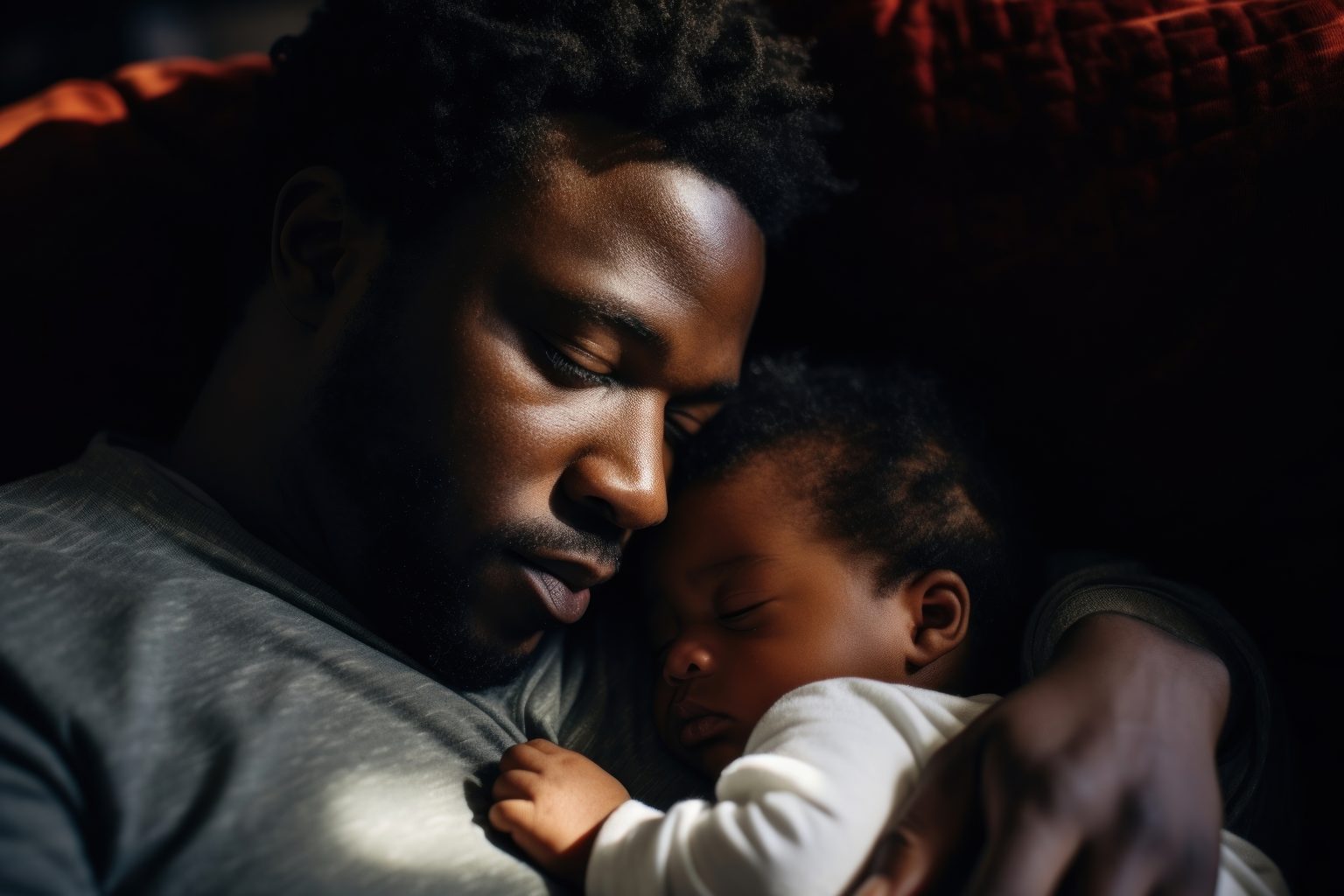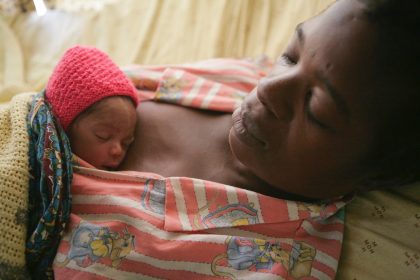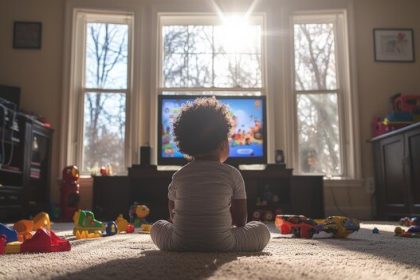Motherhood storms in with guilt, regret, and mood swings—but fathers drown too in Paternal Postpartum Depression, especially in patriarchal Meru, Maasai and Kalenjin communities where they choke in silent depression over financial fears, fractured relationships, work-life balance, low-parenting confidence, worsened by ethnic macho image.
Contrary to popular belief, not every parent is plunged into a state of ecstasy after welcoming their newborn into the world.
In fact, the majority of women during the first two weeks of postpartum go through intense negative emotions—anxiety, sadness, moodiness, regret, and guilt in what is supposed to be a joyous occasion.
These ‘baby blues’ are a normal, self-solving, post-pregnancy experience linked to massive hormonal fluctuations happening to women as the levels get back to baseline.
However, for 10-15 per cent of mothers, the symptoms not only persist but worsen, leading to postpartum depression, a major depressive disorder.
Without the appropriate help and support, it can be detrimental to both mother and child.
But do fathers also experience postpartum depression, or is it exclusive to mothers?
Well, research shows that around five per cent of fathers globally experience postpartum depression, with prevalence rising significantly if the mother is also experiencing perinatal depression, according to a 2022 study published in the Journal of Personalised Medicine.
Prof Mariana Mazza and fellow researchers confirmed paternal perinatal depression as a valid clinical entity, noting that rates can increase to 29 per cent in some African contexts when risk factors like poor social support and income stress are present.
Untreated paternal depression can significantly harm a child’s cognitive, behavioural and emotional development
Many fathers experience depression after their child’s birth but don’t seek help due to mental health stigma, lack of symptom recognition, and the fact that men’s depression often presents differently than expected—yet untreated paternal depression can significantly harm a child’s cognitive, behavioural and emotional development.
Paternal postpartum depression can affect any father, but some face higher risk due to personal or family history of depression, financial stress, relationship strains, work-life pressures, exclusion from the mother-baby bond, lack of support, low parenting confidence, or a difficult birth experience.
Notably, the strongest predictor is maternal depression—fathers with depressed partners are more than twice as likely to experience depression themselves, according to a multinational study published in the Journal of American Medical Association (JAMA).
No specific studies from Kenya were identified in the available data, but a 2023 study from Ethiopia’s University of Addis Ababa and Pakistan suggests similar patterns may apply in patriarchal settings.
Fathers facing money problems are likely to experience postpartum depression, especially when they lack support
Cultural and socioeconomic factors strongly influence paternal postpartum depression. In traditional Kenyan communities like the Meru, Maasai, and Kalenjin, rigid gender roles—expecting men to be stoic providers—often discourage them from admitting emotional struggles.
Though local studies are limited, research in Ethiopia found 29 per cent of fathers experienced postnatal depression, driven by financial stress and lack of support. Similar patterns in Pakistan suggest Kenyan men likely face the same pressures but stay silent due to stigma, according to studies by Dr Dawit Wondimagegn of Addis Ababa University and others.
Financial and social factors play a key role. Fathers facing money problems are much more likely to experience postpartum depression, especially when they lack support, which can multiply the risk by six times. Those with less education also show higher depression rates, as seen in Ethiopian and Pakistani studies. While mental health resources can help, they’re often hard to get in poorer areas.
Young fathers (especially under 25) face higher paternal postpartum depression risk due to financial and emotional unpreparedness, while polygamous relationships may increase stress through multiple household demands; rural fathers often struggle with poverty and healthcare access whereas urban fathers face isolation pressures, and single fathers bear particularly high risks due to lacking partner support and societal stigma – patterns observed in Kenyan contexts and supported by regional studies.
Some fathers experience Couvade syndrome, developing pregnancy-like symptoms like nausea and weight gain.
Classic symptoms of paternal postpartum depression include sadness, loss of interest in pleasurable activities (anhedonia), insomnia, weight changes, poor concentration, worthlessness, fatigue and suicidal thoughts.

A 2012 study published in the Journal of the American Medical Association Psychiatry also singled out non-classical signs of depression like anger, risky behaviour, substance abuse, gambling, workaholism and hypersexuality, which may go undiagnosed.
Paternal postpartum depression can affect children’s development, according to a 2024 study in the Journal of Clinical Medicine, indicating that depressed fathers may struggle with responsive caregiving, leading to emotional and behavioural problems in their children, especially boys. The effects are worse when depression is severe, lasts beyond the birth period, or when mothers are also experiencing mental health issues.
Today’s dads are more involved in childcare due to shifting gender roles, remote work options, and paternity leave policies
Studies show that untreated paternal postpartum depression increases the risk of childhood psychiatric disorders. Getting help through therapy, support groups, or conversations can strengthen father-child bonds and improve children’s developmental outcomes.
Just how did previous generations of fathers handle paternal postpartum depression? Shifts in societal norms may hold the answer.
Today’s dads are more involved in childcare due to shifting gender roles, remote work options, and paternity leave policies. This deeper emotional involvement exposes them to more parenting challenges. Financial pressures have increased as the cost of living rises, placing additional stress on fathers as providers.
Modern families also have less support from extended family members who traditionally helped with childcare and household duties. While fathers in past generations might have experienced similar feelings, today’s social changes have made paternal postpartum depression more visible and potentially more impactful.
Many African cultures provide strong support systems for new mothers, like Nigeria’s Igbo Omugwo tradition, where grandmothers care for mother and baby for 40 days, but fathers typically don’t receive similar help. In Kenya, men might have informal groups like friends or “boys’ clubs,” but these rarely focus on parenting challenges.
Urban fathers might benefit from workplace support groups or digital communities to replace traditional networks
Research done in Nairobi’s informal settlements on the relationship between paternal involvement and maternal mental health by Vibian Angwenyi, published in BMC Health in 2024, shows that when fathers actively participate in childcare, maternal depression decreases, suggesting that better support systems for men could protect their mental health too.
Creating safe spaces for fathers to share experiences—through community groups, religious organisations, or online platforms—could help address paternal postpartum depression. Traditional male gatherings in patriarchal societies could be adapted to include discussions about fatherhood and mental health. Urban fathers might benefit from workplace support groups or digital communities to replace traditional networks.
Other important supports include raising awareness about paternal postpartum depression, developing education programs for both parents, creating specific screening tools for fathers, and offering paid paternity leave to help men adjust to parenthood.
Finally, research shows that fathers’ mental health needs more attention in discussions about postpartum depression. Men often experience depression differently, showing anger or withdrawal rather than typical symptoms. We need better methods to identify and treat paternal postpartum depression. By supporting research, increasing awareness, and creating safe spaces for fathers to discuss their struggles, we can improve outcomes for the entire family and ensure fathers don’t face these challenges alone.
Dr Nyandia Maina is a Medical Doctor, Photo-Essayist and Creative Non-Fiction Writer.


























